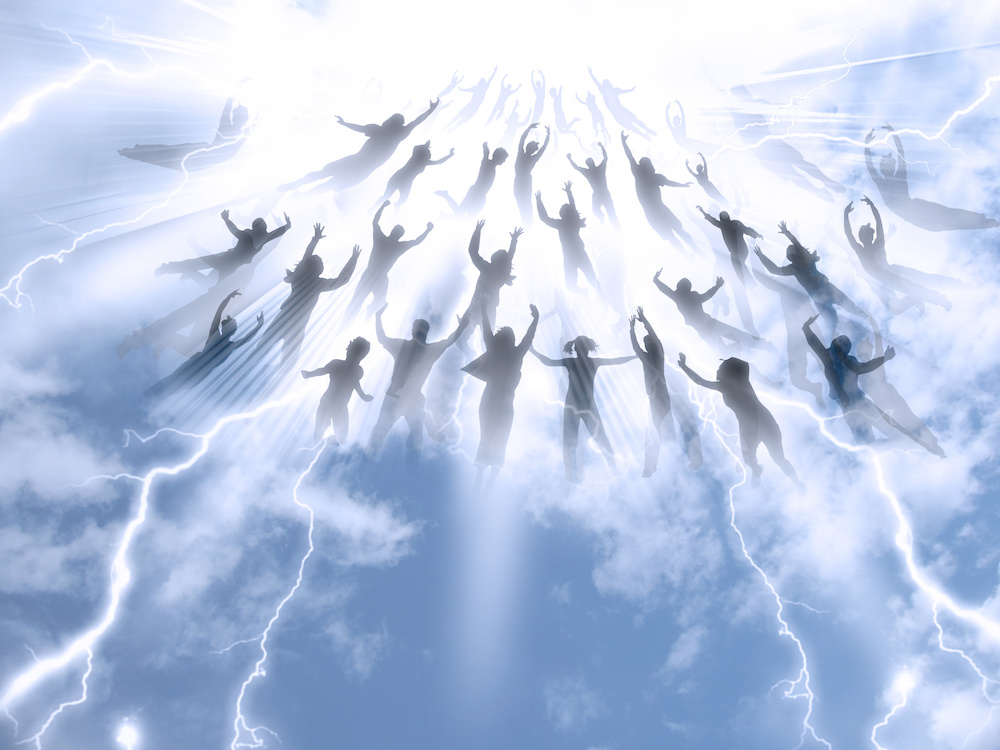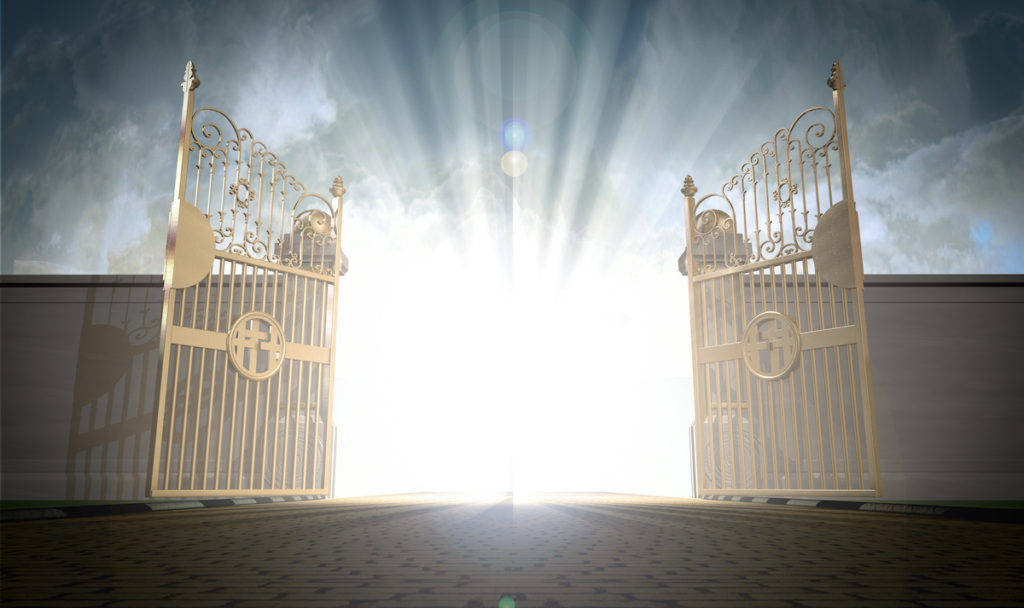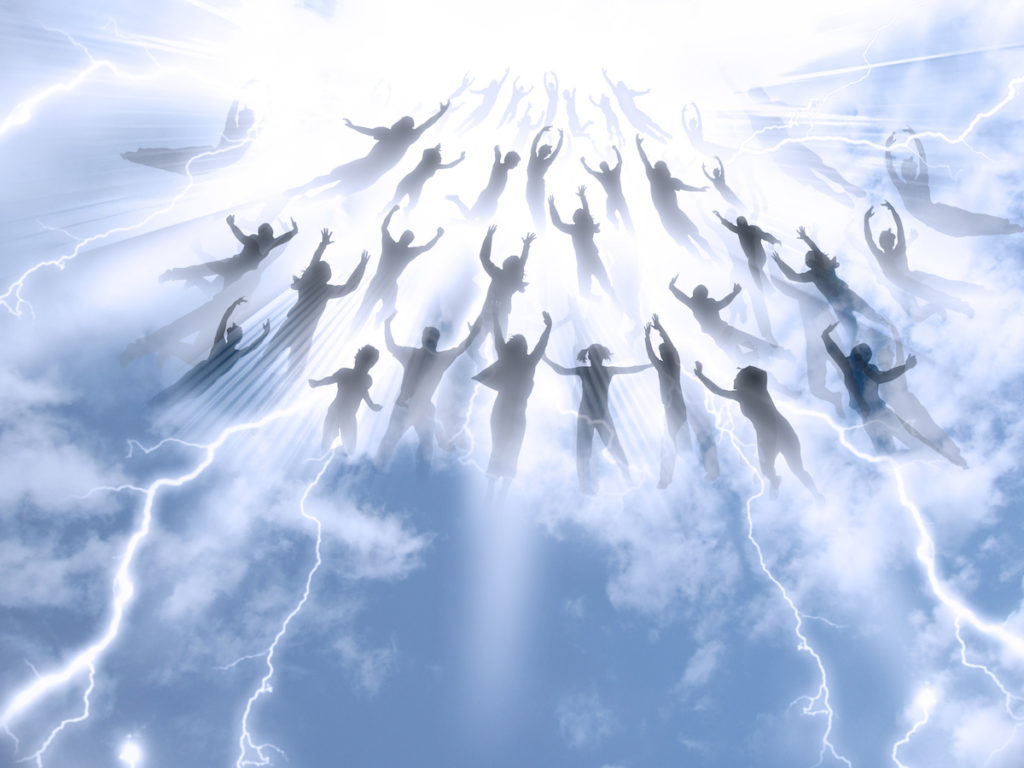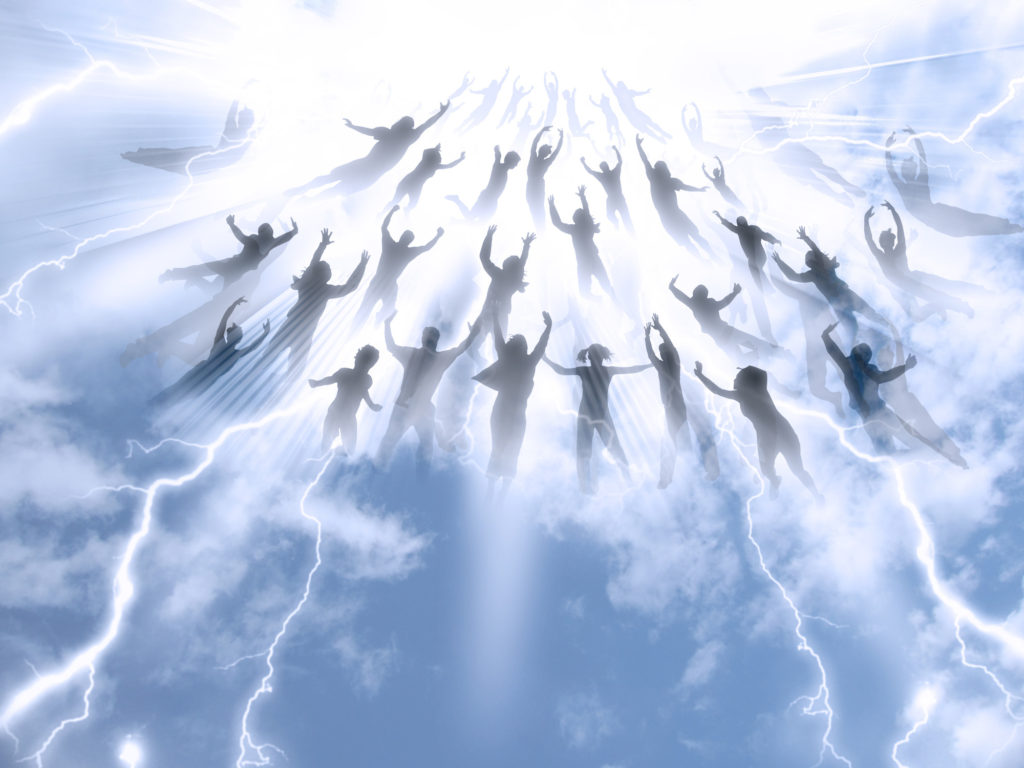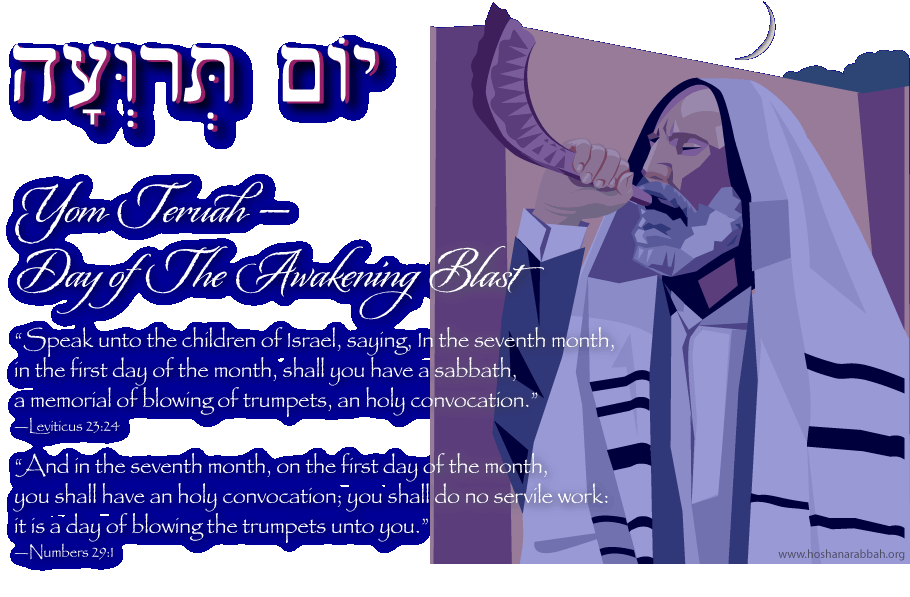
Today is Yom Teruah. The new moon was spotted in Israel yesterday evening marking the beginning of the seventh month on the biblical calendar and, hence, the first day off the seventh month, which is Yom Teruah or the Day of Trumpets or Shofars, or the Day of Shouting (Lev 23:23–25). It is a Sabbath and a divine appointment (Heb. moed) of Elohim as well as a commanded assembly (Heb. miqra kodesh), when YHVH’s people gather together to worship and praise him, to learn of his ways, to pray, fellowship and eat.
In the past, I have written a teaching article on the subject of Yom Teruah (https://www.hoshanarabbah.org/pdfs/yom_teruah.pdf) and I have also done many teaching videos on this subject (https://www.youtube.com/playlist?list=PL5EzE5DQnrHfWWbczzkRo6IOnglxhbRfM) for your blessing and edification.

The Bible says very little about Yom Teruah, which the Jews traditionally refer to by the non-biblical name of Rosh Hashanah. However, by putting all the pieces of the biblical puzzle together (which I explain in my article and videos), the most important aspect of this day become evident: It is the second coming of Yeshua and the first fruits resurrection of the saints and their glorification. Now that’s something to shout about!
Below is a list of scriptures that describes this momentous day, what the rewards of the righteous will be, and how we need to be NOW preparing for the ultimate prophetic fulfillment of Yom Teruah.
May you be edified and encouraged by what the Word of Elohim says.
Preparing Ourselves for the Second Coming of Yeshua
The Second Coming of Yeshua—The Saint’s Ultimate Joy and Reward
1 Pet 5:4, [A]nd when the Chief Shepherd appears, you will receive the crown of glory that does not fade away.
Acts 3:19, 21, Repent therefore and be converted, that your sins may be blotted out, so that times of refreshing may come from the presence of the Lord…whom heaven must receive until the times of restoration of all things, which Elohim has spoken by the mouth of all His holy prophets since the world began.
2 Tim 4:8, Finally, there is laid up for me the crown of righteousness, which the Lord, the righteous Judge, will give to me on that Day, and not to me only but also to all who have loved His appearing.
Col 3:1, When the Messiah who is our life appears, then you also will appear with Him in glory.
The Resurrection Is the Saint’s Ultimate Victory
At the second coming of Yeshua and the resurrection, the saint will gain the ultimate salvation over the world, the flesh and the devil.
1 Cor 15:53–57, For this corruptible must put on incorruption, and this mortal must put on immortality. So when this corruptible has put on incorruption, and this mortal has put on immortality, then shall be brought to pass the saying that is written: “Death is swallowed up in victory. O Death, where is your sting? O Hades, where is your victory?” The sting of death is sin, and the strength of sin is the law. But thanks be to Elohim, who gives us the victory through our Lord Yeshua the Messiah.
The Resurrection Is the Saint’s Ultimate Salvation—the Salvation and Glorification of the Body
Heb 9:28, [S]o the Messiah was offered once to bear the sins of many. To those who eagerly wait for Him He will appear a second time, apart from sin, for salvation.
1 Pet 1:3–5, Blessed be the Elohim and Father of our Lord Yeshua the Messiah, who according to His abundant mercy has begotten us again to a living hope through the resurrection of Yeshua the Messiah from the dead, to an inheritance incorruptible and undefiled and that does not fade away, reserved in heaven for you, who are kept by the power of Elohim through faith for salvation ready to be revealed in the last time.
Phil 3:20–21, For our citizenship is in heaven, from which we also eagerly wait for the Savior, the Lord Yeshua the Messiah, who will transform our lowly body that it may be conformed to His glorious body, according to the working by which He is able even to subdue all things to Himself.
The Saint’s Glorification and Transformation at the Resurrection Described
1 Cor 15:50–58, Now this I say, brethren, that flesh and blood cannot inherit the kingdom of Elohim; nor does corruption inherit incorruption. Behold, I tell you a mystery: We shall not all sleep, but we shall all be changed—in a moment, in the twinkling of an eye, at the last trumpet. For the trumpet will sound, and the dead will be raised incorruptible, and we shall be changed. For this corruptible must put on incorruption, and this mortal must put on immortality. So when this corruptible has put on incorruption, and this mortal has put on immortality, then shall be brought to pass the saying that is written: “Death is swallowed up in victory. O Death, where is your sting? O Hades, where is your victory?” The sting of death is sin, and the strength of sin is the law. But thanks be to Elohim, who gives us the victory through our Lord Yeshua the Messiah. Therefore, my beloved brethren, be steadfast, immovable, always abounding in the work of the Lord, knowing that your labor is not in vain in the Lord.
1 John 3:1–3, Behold what manner of love the Father has bestowed on us, that we should be called children of Elohim! Therefore the world does not know us, because it did not know Him. Beloved, now we are children of Elohim; and it has not yet been revealed what we shall be, but we know that when He is revealed, we shall be like Him, for we shall see Him as He is. And everyone who has this hope in Him purifies himself, just as He is pure.
Phil 3:20–21, For our citizenship is in heaven, from which we also eagerly wait for the Savior, the Lord Yeshua the Messiah, who will transform our lowly body that it may be conformed to His glorious body, according to the working by which He is able even to subdue all things to Himself.
Col 3:4,When the Messiah who is our life appears, then you also will appear with Him in glory.
1 Pet 1:3–9, Blessed be the Elohim and Father of our Lord Yeshua the Messiah, who according to His abundant mercy has begotten us again to a living hope through the resurrection of Yeshua the Messiah from the dead, to an inheritance incorruptible and undefiled and that does not fade away, reserved in heaven for you, who are kept by the power of Elohim through faith for salvation ready to be revealed in the last time. In this you greatly rejoice, though now for a little while, if need be, you have been grieved by various trials, that the genuineness of your faith, being much more precious than gold that perishes, though it is tested by fire, may be found to praise, honor, and glory at the revelation of Yeshua the Messiah, whom having not seen you love. Though now you do not see Him, yet believing, you rejoice with joy inexpressible and full of glory, receiving the end of your faith—the salvation of your souls.
Yeshua Is Coming to Judge Everyone
At his second coming, Yeshua will come to judge everyone both saints and sinners on the basis of the righteous or evil works the have done.
2 Cor 5:10, For we must all appear before the judgment seat of the Messiah, that each one may receive the things done in the body, according to what he has done, whether good or bad.
Rom 14:10–12, But why do you judge your brother? Or why do you show contempt for your brother? For we shall all stand before the judgment seat of the Messiah. For it is written: “As I live, says YHVH, every knee shall bow to Me, and every tongue shall confess to Elohim.” So then each of us shall give account of himself to Elohim.
1 Pet 4:5, They will give an account to Him who is ready to judge the living and the dead.
Rev 20:11–15, Then I saw a great white throne and Him who sat on it, from whose face the earth and the heaven fled away. And there was found no place for them. And I saw the dead, small and great, standing before Elohim, and books were opened. And another book was opened, which is the Book of Life. And the dead were judged according to their works, by the things which were written in the books. The sea gave up the dead who were in it, and Death and Hades delivered up the dead who were in them. And they were judged, each one according to his works. Then Death and Hades were cast into the lake of fire. This is the second death. And anyone not found written in the Book of Life was cast into the lake of fire.
Preparing Ourselves for Yeshua’s Return
In preparation for the second coming of Yeshua who will come to judge, what manner of person ought we to be?
1 Pet 1:13–16, Therefore gird up the loins of your mind, be sober, and rest your hope fully upon the grace that is to be brought to you at the revelation of Yeshua the Messiah; as obedient children, not conforming yourselves to the former lusts, as in your ignorance; but as He who called you is holy, you also be holy in all your conduct, because it is written, “Be holy [set apart or separate from the world], for I am holy [set apart or separate from the world].”
Tit 2:11–14, For the grace of Elohim that brings salvation has appeared to all men, teaching us that, denying ungodliness and worldly lusts, we should live soberly, righteously, and godly in the present age, looking for the blessed hope and glorious appearing of our great Elohim and Savior Yeshua the Messiah, who gave Himself for us, that He might redeem us from every lawless deed and purify for Himself His own special people, zealous for good works.
2 Tim 4:5–8, But you be watchful in all things, endure afflictions, do the work of an evangelist, fulfill your ministry. For I am already being poured out as a drink offering, and the time of my departure is at hand. I have fought the good fight, I have finished the race, I have kept the faith. Finally, there is laid up for me the crown of righteousness, which the YHVH, the righteous Judge, will give to me on that Day, and not to me only but also to all who have loved His appearing.
1 Cor 1:4–9, I thank my Elohim always concerning you for the grace of Elohim which was given to you by the Messiah Yeshua, that you were enriched in everything by Him in all utterance and all knowledge, even as the testimony of the Messiah was confirmed in you, so that you come short in no gift, eagerly waiting for the revelation of our Lord Yeshua the Messiah, who will also confirm you to the end, that you may be blameless in the day of our Lord Yeshua the Messiah. Elohim is faithful, by whom you were called into the fellowship of His Son, Yeshua the Messiah our Lord.
Phil 3:20–21, For our citizenship is in heaven, from which we also eagerly wait for the Savior, the Lord Yeshua the Messiah, who will transform our lowly body that it may be conformed to His glorious body, according to the working by which He is able even to subdue all things to Himself.
Rom 13:11–14, And do this, knowing the time, that now it is high time to awake out of sleep; for now our salvation is nearer than when we first believed. The night is far spent, the day is at hand. Therefore let us cast off the works of darkness, and let us put on the armor of light. Let us walk properly, as in the day, not in revelry and drunkenness, not in lewdness and lust, not in strife and envy. But put on the Lord Yeshua the Messiah, and make no provision for the flesh, to fulfill its lusts.
Luke 12:35–40, Let your waist be girded and your lamps burning; and you yourselves be like men who wait for their master, when he will return from the wedding, that when he comes and knocks they may open to him immediately. Blessed are those servants whom the master, when he comes, will find watching. Assuredly, I say to you that he will gird himself and have them sit down to eat, and will come and serve them. And if he should come in the second watch, or come in the third watch, and find them so, blessed are those servants. But know this, that if the master of the house had known what hour the thief would come, he would have watched and not allowed his house to be broken into. Therefore you also be ready, for the Son of Man is coming at an hour you do not expect.
1 Pet 4:7–11, But the end of all things is at hand; therefore be serious and watchful in your prayers. And above all things have fervent love for one another, for “love will cover a multitude of sins.” Be hospitable to one another without grumbling. As each one has received a gift, minister it to one another, as good stewards of the manifold grace of Elohim. If anyone speaks, let him speak as the oracles of Elohim. If anyone ministers, let him do it as with the ability which Elohim supplies, that in all things Elohim may be glorified through Yeshua the Messiah, to whom belong the glory and the dominion forever and ever. Amen.
Jas 5:7–8, Therefore be patient, brethren, until the coming of the Lord. See how the farmer waits for the precious fruit of the earth, waiting patiently for it until it receives the early and latter rain. You also be patient. Establish your hearts, for the coming of the Lord is at hand.
Col 3:1–10, 12, If then you were raised with the Messiah, seek those things which are above, where the Messiah is, sitting at the right hand of Elohim. Set your mind on things above, not on things on the earth. For you died, and your life is hidden with the Messiah in Elohim. When the Messiah who is our life appears, then you also will appear with Him in glory. Therefore put to death your members which are on the earth: fornication, uncleanness, passion, evil desire, and covetousness, which is idolatry. Because of these things the wrath of Elohim is coming upon the sons of disobedience, in which you yourselves once walked when you lived in them. But now you yourselves are to put off all these: anger, wrath, malice, blasphemy, filthy language out of your mouth. Do not lie to one another, since you have put off the old man with his deeds, and have put on the new man who is renewed in knowledge according to the image of Him who created him, … Therefore, as the elect of Elohim, holy and beloved, put on tender mercies, kindness, humility, meekness, longsuffering; bearing with one another, and forgiving one another, if anyone has a complaint against another; even as the Messiah forgave you, so you also must do. But above all these things put on love, which is the bond of perfection. And let the peace of Elohim rule in your hearts, to which also you were called in one body; and be thankful. Let the word of the Messiah dwell in you richly in all wisdom, teaching and admonishing one another in psalms and hymns and spiritual songs, singing with grace in your hearts to the Lord. And whatever you do in word or deed, do all in the name of the Lord Yeshua, giving thanks to Elohim the Father through Him.
The following is a description of and a warning to those who grow weary waiting for Yeshua to come, and an exhortation to the saints what their spiritual demeanor should be while waiting.
2 Pet 3:3–15,17–18, [K]nowing this first: that scoffers will come in the last days, walking according to their own lusts, and saying, “Where is the promise of His coming? For since the fathers fell asleep, all things continue as they were from the beginning of creation.” For this they willfully forget: that by the word of Elohim the heavens were of old, and the earth standing out of water and in the water, by which the world that then existed perished, being flooded with water. But the heavens and the earth which are now preserved by the same word, are reserved for fire until the day of judgment and perdition of ungodly men. But, beloved, do not forget this one thing, that with the Lord one day is as a thousand years, and a thousand years as one day. The Lord is not slack concerning His promise, as some count slackness, but is longsuffering toward us, not willing that any should perish but that all should come to repentance. But the day of the Lord will come as a thief in the night, in which the heavens will pass away with a great noise, and the elements will melt with fervent heat; both the earth and the works that are in it will be burned up. Therefore, since all these things will be dissolved, what manner of persons ought you to be in holy conduct and godliness, looking for and hastening the coming of the day of Elohim, because of which the heavens will be dissolved, being on fire, and the elements will melt with fervent heat? Nevertheless we, according to His promise, look for new heavens and a new earth in which righteousness dwells. Therefore, beloved, looking forward to these things, be diligent to be found by Him in peace, without spot and blameless; and consider that the longsuffering of our Lord is salvation… You therefore, beloved, since you know this beforehand, beware lest you also fall from your own steadfastness, being led away with the error of the wicked; but grow in the grace and knowledge of our Lord and Savior Yeshua the Messiah.
The Saint Must Endure in Their Faith Until Yeshua Returns
Until Yeshua comes, the saints are kept in the faith by the power of Elohim through the fiery trials of life.
1 Pet 1:3–9, Blessed be the Elohim and Father of our Lord Yeshua the Messiah, who according to His abundant mercy has begotten us again to a living hope through the resurrection of Yeshua the Messiah from the dead, to an inheritance incorruptible and undefiled and that does not fade away, reserved in heaven for you, who are kept by the power of Elohim through faith for salvation ready to be revealed in the last time. In this you greatly rejoice, though now for a little while, if need be, you have been grieved by various trials, that the genuineness of your faith, being much more precious than gold that perishes, though it is tested by fire, may be found to praise, honor, and glory at the revelation of Yeshua the Messiah, whom having not seen you love. Though now you do not see Him, yet believing, you rejoice with joy inexpressible and full of glory, receiving the end of your faith—the salvation of your souls.
Great Spiritual Rewards Wait Those Saint Who Overcome and Endure to the End
Rev 2:7, To him who overcomes I will give to eat from the tree of life, which is in the midst of the Paradise of Elohim.
Rev 2:11, He who overcomes shall not be hurt by the second death.
Rev 2:16, To him who overcomes I will give some of the hidden manna to eat. And I will give him a white stone, and on the stone a new name written which no one knows except him who receives it.”
Rev 2:26–27, And he who overcomes, and keeps My works until the end, to him I will give power over the nations— “He shall rule them with a rod of iron; they shall be dashed to pieces like the potter’s vessels” —as I also have received from My Father.
Rev 3:5, He who overcomes shall be clothed in white garments, and I will not blot out his name from the Book of Life; but I will confess his name before My Father and before His angels.
Rev 3:12, He who overcomes, I will make him a pillar in the temple of My Elohim, and he shall go out no more. And I will write on him the name of My Elohim and the name of the city of My Elohim, the New Jerusalem, which comes down out of heaven from My Elohim. And I will write on him My new name.
Rev 3:21, To him who overcomes I will grant to sit with Me on My throne, as I also overcame and sat down with My Father on His throne.
